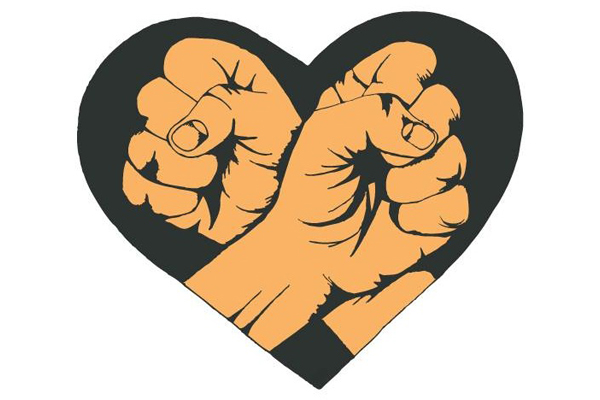
Fearless Summer
We already know this summer’s gonna be a scorcher, weather-wise. (Sorry, Colorado …) It’s also shaping up to be a hot one for climate activists.
These last few years have been no chilly picnic: In August of 2011, we saw journalist-turned-activist Bill McKibben and more than 1,000 other peaceful protesters arrested for civil disobedience at the White House. That was pretty big! But this 2013 “Fearless Summer” will likely be even bigger.
A mash-up between grassroots efforts and large, national environmental groups, Fearless Summer is a coordinated effort of more than 50 organizations and unaffiliated individuals that takes aim “against all forms of dirty energy.” From the campaign’s mission statement:
Refusing to trade one community’s suffering for another, the organizations endorsing Fearless Summer are coming together to resist any form of energy that destroys people’s health and communities. They reject the ideas that natural gas is “better” than coal, that nuclear energy is a solution to the climate crisis and that industrial biomass is renewable and therefore good. … In sharp contrast to Washington inaction, ordinary citizens around the country are increasingly turning to the proud American traditions of direct intervention and civil disobedience to resist the destruction of their communities by dirty energy and the climate crisis.
Fearless Summer grew out of an activist summit in February in upstate New York. “We got together to really talk about how do we build a more unified and more powerful movement — how do we start speaking the same language?” says coordinator Mathew Louis-Rosenberg, who is working to stop coal mining in West Virginia with the group Radical Action for Mountain People’s Survival.
The result was an open call for escalation — “whatever escalation means for the campaign that people are a part of,” Louis-Rosenberg says.
“We’re hoping to both encourage the movement across the country to take bolder action and have people feel connected to each other and not feel so isolated,” Louis-Rosenberg says. “Nobody owns Fearless Summer. This is something we’re offering — take it and run with it. It’s more like Occupy than it is like 350,” McKibben’s highly organized nonprofit group.
In that sense, Fearless Summer is more a branding strategy than an organizing one. It’s not an organization; it has no staff. It’s simply an attempt to frame a host of disparate actions happening around the country under the tent of one growing but diverse movement.
This week has already seen the arrests of nearly two dozen activists — many of them former Obama campaign staff — in civil disobedience against the Keystone XL pipeline. Yesterday, National Nurses United led a march across San Francisco’s Golden Gate bridge against the pipeline.
There are already 28 more actions alone planned for next Monday through Friday, the movement’s kick-off week. Want to attend a jazz-style funeral march? There’s Frack-Bash in Harrisburg, Penn. More interested in some take-no-prisoners direct action training? Head to San Antonio, Texas.
If this were the Oregon Trail, at this breakneck pace the Fearless Summer wagon would snap an axle and lose a baby to a rattlesnake bite by like Thursday. Good thing the Fearless Summer has a lot of wagons.
Fearless Summer coordinators are hoping this might be “a bit of an antidote” to top-down nonprofit activism, with its “inside the beltway, D.C.-focused strategy” and centralized leadership, Louis-Rosenberg says. “Looking back at the history of these kinds of social movements and how they’ve been successful, the most successful movements really did operate on this much more decentralized grassroots model … The voices we’re trying to uplift are the leaders from those communities that are most impacted [by environmental destruction].”
No one has to tell Louis-Rosenberg and the rest of the Fearless Summer crew that building and maintaining big tents is difficult. Where there are broad-based coalitions, there tends to be a narcissism of small differences that can derail action by creating endless debates on tactics and philosophy. There’s also a lot of just general whinging.
But instead of focusing on differences, activists are looking to opportunities. Even one member of Earth First!, a radical eco-action group that leans more black bandanas than signing petitions, had this to say this week:
I’ll admit it can be pretty frustrating to watch big [environmental groups] build glossy, shallow campaigns off the grassroots momentum created by the efforts of our radical countercultures. It’s tempting to talk shit about how they’ll probably use these pictures in their next mass email fundraising plea while our friends and allies living full time on the front lines are scraping by on stale bagels… But, in my opinion, it really ain’t worth wasting time on.
I want civil disobedience to become more popular and widely practiced, even if it annoys me. Why? Because these actions make space for growing broader support of direct action in general, if we engage them as such.
Could Fearless Summer create an unholy non-violent direct-action alliance between radical groups like Earth First! and centrist outfits like the Sierra Club, which has traditionally shied away from civil disobedience? Apparently: Local chapters of both groups have signed on to the list of participating organizers.
“We need every card in the deck if we’re gonna win this fight,” Louis-Rosenberg says. “The situation is just too urgent and too desperate to not use all the resources and all the tools we have available.”
If this broad, united front of disparate elements of the climate movement can hold together, it’ll be a hot summer indeed.
Correction: A previous version of this post said that Bill McKibben and others were arrested at the White House last summer. It was 2011, not 2012.


